Dreams have always been a fascinating aspect of human existence and have intrigued people for thousands of years. They are often seen as a reflection of our innermost desires, fears, thoughts, and emotions.
In Hinduism, dreams hold a special significance as they are believed to be a powerful tool for spiritual growth and self-discovery. Dreams provide us with insights into the workings of our subconscious mind.
According to Hindu philosophy, the human mind is made up of three parts – conscious mind (jagrat), sub-conscious mind (swapna), and unconscious mind (sushupti). Dreams are the manifestation of the activities taking place in the sub-conscious mind during sleep.
Explanation of the Importance of Dreams in Hinduism:
Hinduism considers dreams as a means to attain spiritual enlightenment and gain insight into one’s life path. Dreams can provide guidance, warnings or even revelations about one’s future.
They help us connect with our higher self and with the divine forces that govern our lives. Moreover, dreams play an essential role in understanding karma – actions and their consequences – which forms an integral part of Hindu scriptures.
It is believed that dreams can provide glimpses into past lives or future events that will unfold based on present actions. Thus, interpreting dreams correctly can offer valuable insights into one’s karmic balance.
Brief history of dream interpretation in Hinduism:
The practice of interpreting dreams has been present in Hindu culture since ancient times. The Vedas, which are among the oldest texts known to humanity, contain references to dream interpretation dating back over 5000 years ago.
One significant figure in this field was Maharishi Valmiki who wrote Ramayana- an epic account that describes Lord Rama’s life journey- based on his own dream experience where he saw Lord Rama’s story unfolding before him. The interpretations of dreams, as per Hinduism, have undergone significant changes over time.
In ancient times, dream interpretation was done by priests or scholars who had specialized knowledge in this field. Today, there are many spiritual gurus and astrology experts who provide guidance on interpreting dreams from a metaphysical perspective.
The Role of Dreams in Hinduism
Understanding the nature of dreams
In Hinduism, dreams are considered to be a manifestation of the subconscious mind. They are believed to reflect our innermost thoughts, desires, and fears. Dreams are seen as a way for the individual soul (jiva) to communicate with the universal soul (atman).
According to Hindu philosophy, the atman is present in all living beings and connects us to the divine. Dreams are seen as a bridge between our waking life and the spiritual realm.
They allow us to access knowledge and insights that are not available during our conscious state. Dreams can also reveal hidden aspects of ourselves that we may not be aware of, allowing us to work through emotional issues or gain clarity on important life decisions.
The significance of dreams in Hindu mythology and scriptures
Dreams have been an important part of Hindu mythology since ancient times. The Vedas, Upanishads, Puranas, and other sacred texts contain numerous stories about dreams and their interpretation.
In many cases, dreams are seen as messages from the gods or from ancestors who have passed away. One famous example is the dream experienced by King Janaka in the Ramayana.
In his dream, he saw a beautiful bow made by Lord Vishnu himself. He declared that whoever was able to string this bow would win his daughter’s hand in marriage.
Many princes tried but failed until Lord Rama came along and easily strung it. This dream was seen as a prophecy foretelling Rama’s victory over demons.
The connection between dreams and karma
In Hinduism, karma refers to our actions and their consequences both in this life and beyond. Dreams are believed to be closely linked with our karmic debts – both good and bad. A person’s past actions can influence what they dream about and how those dreams are interpreted.
For example, if a person has performed good deeds in their past life, they may have positive and prophetic dreams. On the other hand, if someone has negative karma, they may have nightmares or dreams that warn them of impending danger.
Dreams can also reveal the karmic lessons that a person needs to learn in order to progress on their spiritual path. Therefore, understanding the messages in our dreams can help us make positive changes in our lives and improve our karma.
Types of Dreams and their Meanings
Dreams are a powerful tool for spiritual growth and self-discovery in Hinduism. Understanding the different types of dreams is essential to interpreting their meanings correctly. There are three primary types of dreams: prophetic dreams, symbolic dreams, and nightmares.
Prophetic Dreams: Interpretation and Significance
Prophetic dreams are those that provide a glimpse into the future. These types of dreams contain premonitions about upcoming events.
According to Hinduism, prophetic dreams come from the goddess Saraswati, who is known as the goddess of knowledge, music, art, wisdom, and learning. In Hindu mythology, there are many examples of prophetic dreams that have changed the course of events.
For example, King Dasharatha had a dream that his eldest son Ram was born to defeat evil forces in his kingdom. Similarly, Pandavas had a dream about their victory in Kurukshetra war before it happened.
Interpreting prophetic dreams can be challenging as they often contain symbols or metaphors that represent real-life situations. It requires careful analysis to understand the meaning behind these symbols.
Symbolic Dreams: Decoding the Symbols
Symbolic dreams are those that contain hidden messages or meanings in their symbolism. They reflect our innermost thoughts and emotions which we may not be aware of consciously. In Hinduism, symbolic dreams come from Lord Vishnu who is known as the protector God.
Symbols can be anything from animals to objects like water or fire to people you know or even people you do not know but have an impact on your life. For instance:
– A snake symbolizes transformation – A spider symbolizes creativity
– Water represents emotional states Decoding these symbols requires an understanding of your own experiences and emotions along with knowledge about symbolism in Hindu mythology.
Nightmares: Causes, Interpretation, and Remedies
Nightmares are scary dreams that can be distressing and cause anxiety. In Hinduism, nightmares are believed to be caused by negative energy from evil spirits or negative karma from past lives. Interpretation of nightmares can help us understand our fears and anxieties.
The symbols in the nightmare could represent something we fear or a traumatic event from our past we need to let go of. There are several remedies for nightmares in Hinduism, including prayer, meditation, yoga, and chanting mantras.
Additionally, practicing good sleep hygiene like avoiding caffeine before bed and creating a relaxing sleep environment can help reduce the frequency of nightmares. Understanding the different types of dreams and their meanings is essential for spiritual growth and personal development in Hinduism.
Prophetic dreams provide glimpses into the future while symbolic dreams decode hidden messages and meanings through symbolism. Nightmares may be distressing but are an opportunity for growth when interpreted correctly.
Dream Interpretation Techniques
Dream interpretation is an art that requires practice and patience. In Hinduism, the interpretation of dreams is considered an important part of spiritual growth.
There are various techniques to understand dream symbols and their meanings. These techniques help to unlock the hidden messages that our subconscious mind is trying to convey through our dreams.
Techniques for understanding dream symbols
The first step in interpreting your dreams is learning how to recognize and understand the symbols they contain. One technique for understanding dream symbols is to keep a dream journal.
Write down your dreams as soon as you wake up, and try to identify any recurring themes or symbols that appear in them. Another technique for understanding dream symbols is to use a dream dictionary.
A dream dictionary contains interpretations of common symbols and themes found in dreams. While these dictionaries can be helpful, it’s important to remember that not all interpretations will apply to every person or situation.
Meditation, Yoga, and other spiritual practices for enhancing dream recall
Meditation and yoga are two powerful spiritual practices that can enhance your ability to remember your dreams. By calming the mind and focusing on your breath, you can create a clear space for your subconscious mind to communicate with you. Another method for enhancing dream recall is using affirmations before bed.
Repeat a statement like “I will remember my dreams” several times before falling asleep. This can help set the intention for remembering your dreams when you wake up.
Astrology and Dream Interpretation
Astrology has been used as a tool for understanding human behavior since ancient times. In Hinduism, astrology plays an important role in interpreting dreams as well. Understanding the position of planets at the time of your birth can offer insight into what types of messages your subconscious mind may be trying to convey through your dreams.
In addition, astrologers can use your birth chart to identify recurring themes and symbols that appear in your dreams. This can help provide a deeper understanding of your spiritual journey and offer insight into areas of your life that may need attention or healing.
Common Dream Themes in Hinduism
Dreams can be a reflection of our thoughts, emotions, and experiences. In Hinduism, dreams are believed to have spiritual significance and can provide insight into our past, present, and future. Understanding common dream themes and their meanings can help us decipher the messages that our subconscious mind is trying to convey.
The Significance of Animals in Dreams
Animals have played an important role in Hindu mythology and are often symbolic representations of various deities. In dreams, animals can represent different aspects of ourselves or other people in our lives.
For example, a snake in a dream can symbolize transformation or rebirth while a cow may represent abundance and fertility. One common animal that appears in many Hindu dreams is the elephant.
The elephant is considered a sacred animal and is associated with Lord Ganesha, the remover of obstacles. Dreaming about an elephant may indicate that we need to overcome a particular obstacle or challenge in our waking life.
The Importance of Colors in Dream Interpretation
Colors are powerful symbols that can evoke different emotions and feelings. In Hinduism, each color has its own significance and represents different aspects of life. For example, red represents passion while yellow symbolizes knowledge.
When interpreting dreams, it’s important to pay attention to the colors present as they may give clues about the message being conveyed by the dream. For instance, dreaming about a lot of green may indicate growth or prosperity while dreaming about black could signify negative emotions such as fear or grief.
The Symbolism behind Water, Fire Air Earth & Space
Hinduism places great importance on the five elements – water, fire, air, earth & space – which are believed to make up everything in existence including human beings. These elements have specific associations with different aspects of life such as emotions (water), transformation (fire), and communication (space). In dreams, the elements can also have symbolic meanings.
For example, dreaming about water may represent emotions or spirituality while fire could indicate transformation or purification. Understanding the symbolism behind each element can help us interpret our dreams more accurately and gain insights into our spiritual path.
Interpreting Dreams from a Spiritual Perspective
The spiritual aspect of dream interpretation is based on the idea that dreams are a reflection of your inner self. The symbols and themes that appear in your dreams can help you understand your subconscious thoughts, desires, and fears. By interpreting your dreams from a spiritual perspective, you can gain deeper insights about yourself and your spiritual journey.
How to use your dreams to understand your spiritual journey
One way to use your dreams to understand your spiritual journey is to keep a dream journal. Write down every detail that you remember about each dream, including the emotions, symbols, and themes. Look for patterns or recurring themes in the dreams over time.
This will help you identify important messages that are coming from within. Another technique for understanding the spiritual significance of your dreams is meditation.
Before going to bed at night, spend some time meditating on what you want to learn or achieve in terms of spirituality through dreaming. This will create an intention that will help guide you toward the messages and lessons that are most relevant for you.
How to find guidance from your dreams
Your dreams can provide guidance when you’re facing difficult decisions or challenges in life. To find guidance from your dreams, start by asking yourself a question before going to sleep. For example: “What should I do about this situation?” or “What lesson am I supposed to learn here?” When you wake up, write down any symbols or messages from the dream that relate to the question.
You can also ask for guidance directly within the dream itself by asking out loud for clarity or direction. Many people report receiving answers through their own voice within their dream state.
How to use your dreams as a tool for self-discovery
Dreams provide an opportunity for self-discovery by revealing unconscious patterns and desires. Pay attention especially to recurring symbols or themes within your dreams, as these may highlight a part of your psyche that is trying to reveal itself. To use your dreams as a tool for self-discovery, be open and receptive to the messages that you receive.
Even if the message is difficult or uncomfortable, try to understand what it could be telling you about yourself and your life journey. Use the insights gained from dream interpretation to make positive changes in your life and work towards greater self-awareness.
Conclusion
Throughout Hinduism, dreams are seen as a powerful and significant experience that can be used for personal development and spiritual growth. Dreams have been interpreted in various ways throughout the religion’s long history, but their importance has remained constant. Understanding the significance of your dreams and learning to interpret them correctly can be an incredibly valuable tool for self-discovery and enlightenment.
In this article, we explored the role of dreams in Hinduism and learned about different types of dreams with their meanings. We also looked at several techniques for interpreting dreams from a spiritual perspective, such as meditation, yoga, astrology, and dream symbol analysis.
One key takeaway from this article is that understanding your dreams requires careful attention to symbolism. The symbols you encounter in your dreams may seem obscure or random at first glance but could hold profound meaning when properly interpreted.
By becoming familiar with common dream symbols within Hindu mythology and learning techniques for decoding these symbols, you can begin to uncover a wealth of insight into your subconscious mind. It is our hope that this article has provided you with a deeper understanding of the power of dreaming in Hinduism.
By exploring different methods for interpreting your dreams from a spiritual perspective, you can unlock untold wisdom about yourself and the world around you. Remember to approach each dream with an open mind and heart; you may just find that they hold some of life’s most profound lessons!



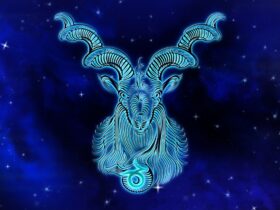
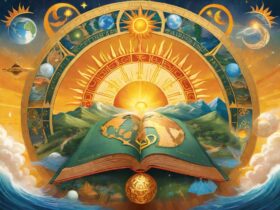

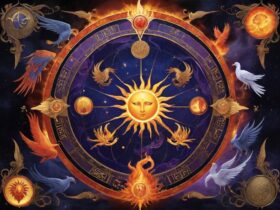
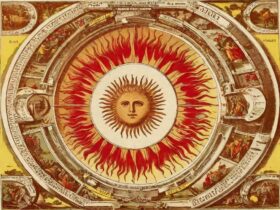
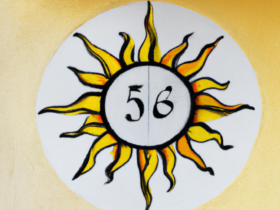
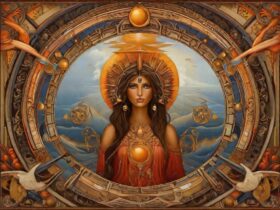













Leave a Reply